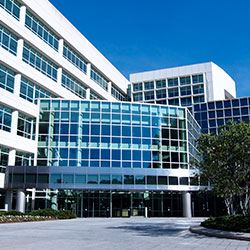 So, you’ve finally made the leap from the planning stage to the point where you’ve hired a broker to tour what’s going to be your next office location. Now all you have to do is narrow that selection down and begin negotiations on rates and terms with each. You’re almost ready to begin your move and your company’s next big expansion. Here are the first steps to making it a safe and beneficial move for your company:
So, you’ve finally made the leap from the planning stage to the point where you’ve hired a broker to tour what’s going to be your next office location. Now all you have to do is narrow that selection down and begin negotiations on rates and terms with each. You’re almost ready to begin your move and your company’s next big expansion. Here are the first steps to making it a safe and beneficial move for your company:
1. Check the Area for Safety & Accessibility
Quickbooks advises your broker to do this. Your new property should be safe at all times of the day. Your broker should do a drive-by during the day and night. Make sure your broker also checks the crime rate statistics for the area. The parking area should have both handicap and adequate parking for people of all abilities.
2. How Much Storage and Filing Space is Available?
You should have enough for your current needs and some growth. If you and your broker agree the office space is a perfect fit otherwise, you can always get offsite storage for a reasonable price. If you do move in, use every space-saving storage technique you can think of, like mail organizers, hanging file systems, plastic totes, and shelving units.
3. Evaluate the Landlord’s Company Representative
While you’re renting based on price, location, safety, and ability to serve your current customers, you also want a good relationship with your future landlord. It saves you stress, hassle, and money down the road. What could be worse than finding the ideal office location at a great price, only to have a landlord that sticks you with as much of the maintenance bill as possible? REJournals.com notes that having an experienced broker is huge for your business. Good ones know many fellow brokers, building owners, and real estate reps. In some cases, they can help you find deals before they’re even listed online. That means you get a good deal - and you can work with a good landlord too.
4. Check the Condition of the Property
This is the obvious one. Your broker should do this briefly now in addition to doing more when it’s time for them to do due diligence. Basically, your broker should look for any obvious damage to the roof, walls, and floor. And of course include the mechanicals like the fire suppression sprinkler, HVAC system, plumbing, and electric. You will have these all checked later by an inspector. But if the landlord can’t present his property well to new tenants, he certainly won’t be any better when you move in to the property later on.
There’s Nothing Better than Doing Your Homework!
Having your broker touring offices in person is hugely important. In fact, here’s an entire list for due diligence once your broker enters that phase of the process. Even the most thorough due diligence can fail to reveal all problems with the property or landlord. In that event, your broker acts as your first line of defense with the landlord, which often saves you from more disputes and awkward exchanges. If your broker follows the tips above, you’ll save yourself from wasting any time whatsoever on landlords and properties that are just not a good fit.
